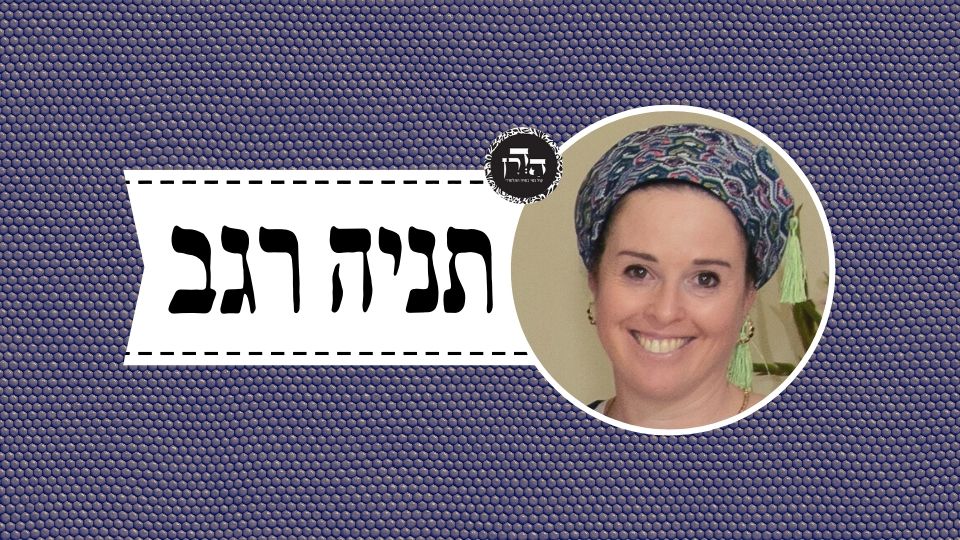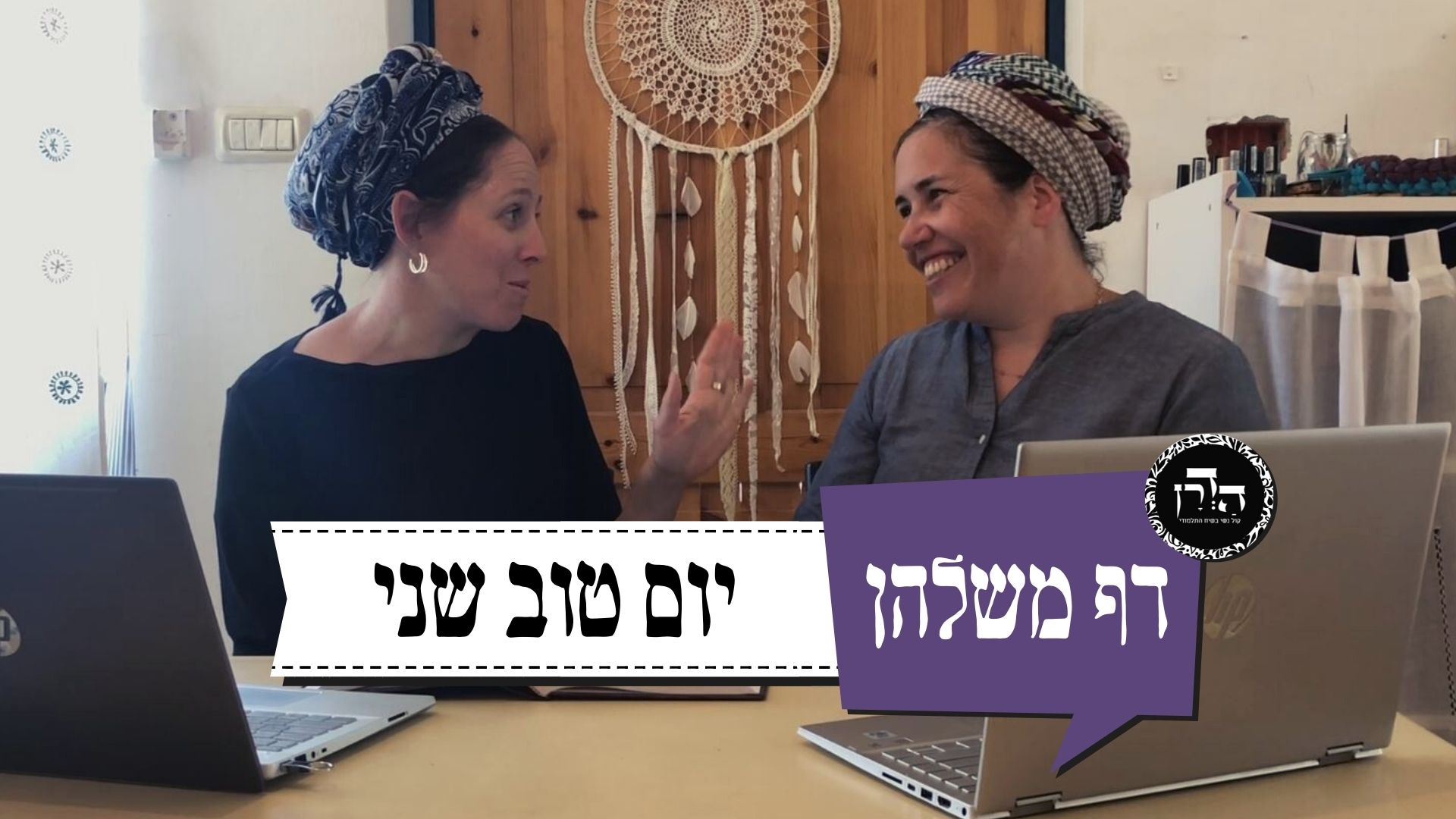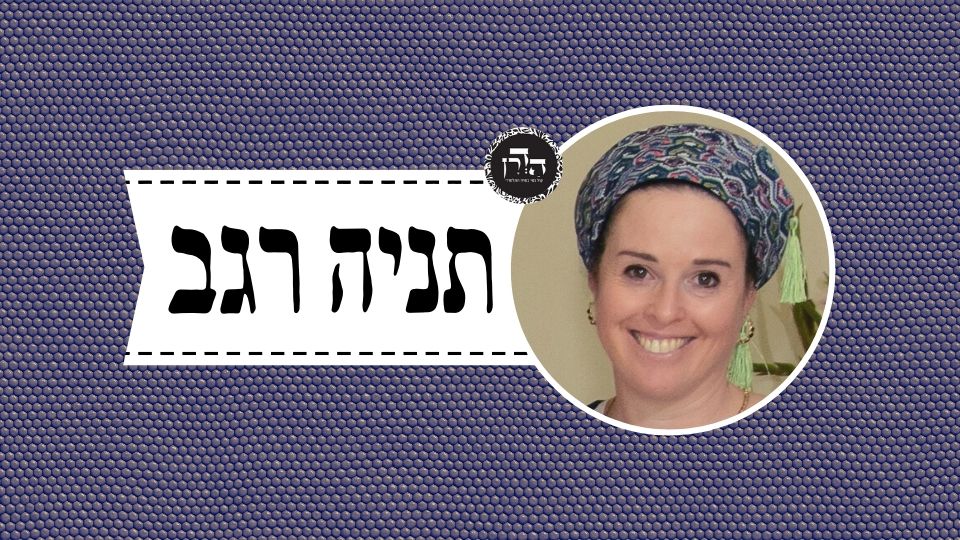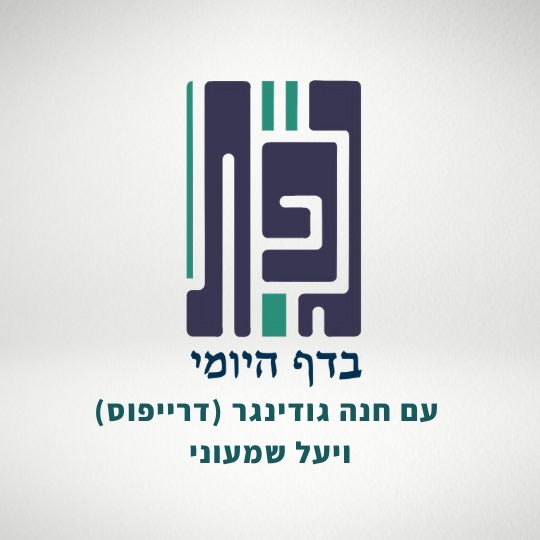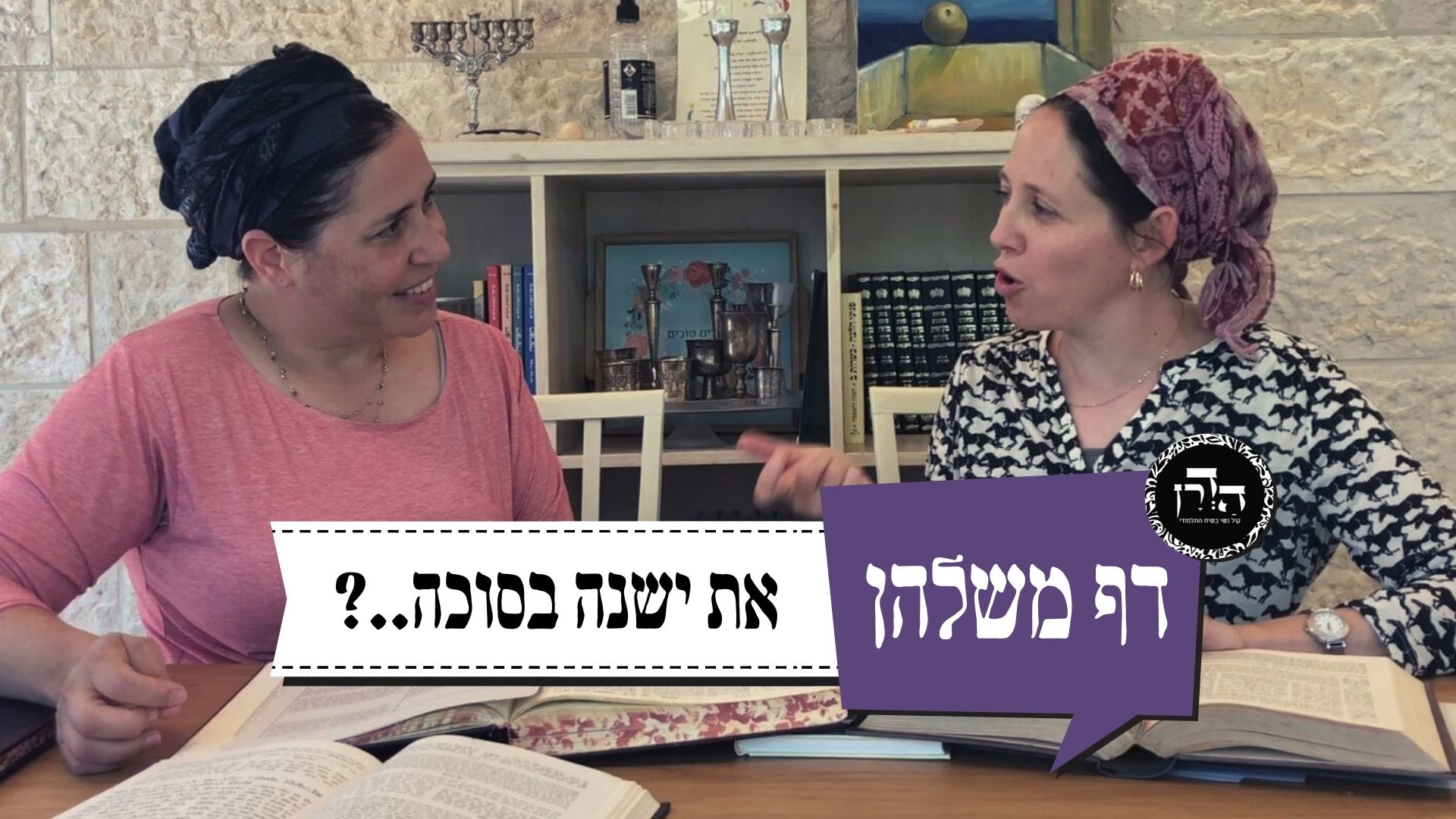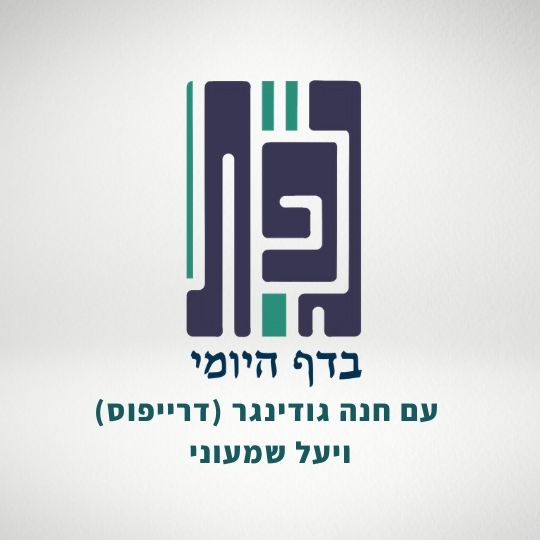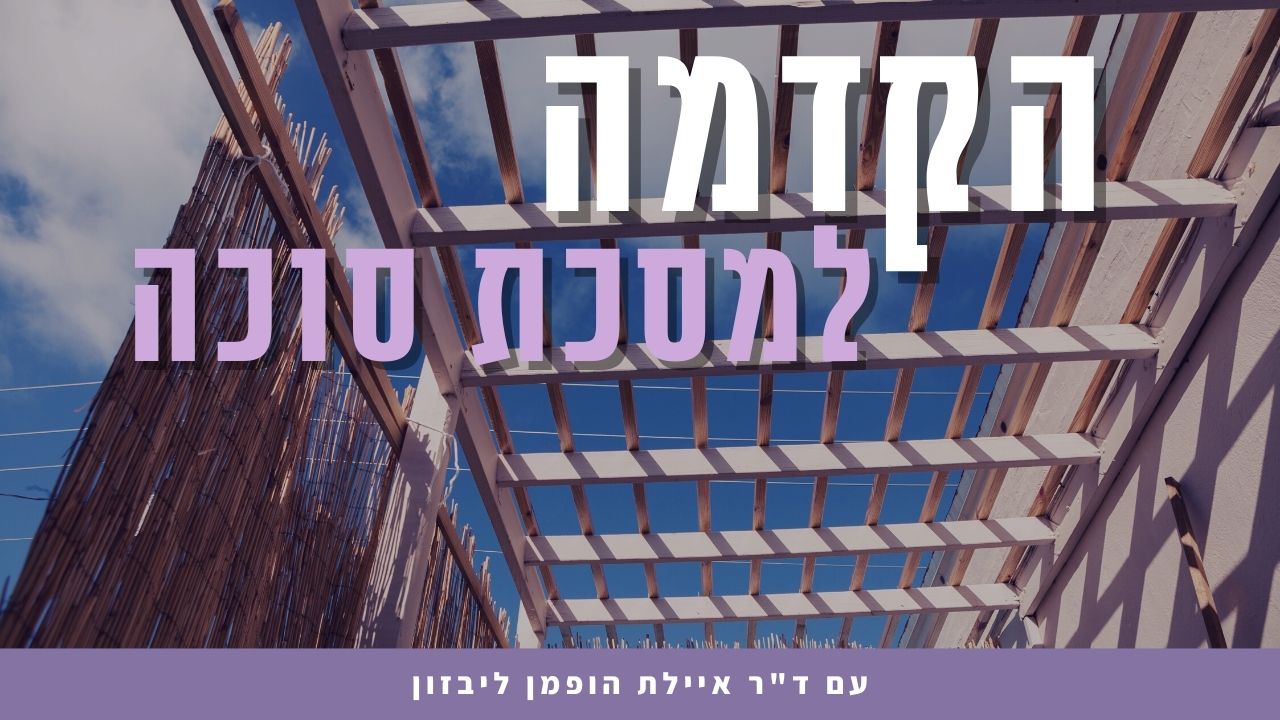סוכה מט
שֶׁכׇּל מִזְבֵּחַ שֶׁאֵין לוֹ לֹא כֶּבֶשׁ וְלֹא קֶרֶן וְלֹא יְסוֹד וְלֹא רִיבּוּעַ — פָּסוּל לַעֲבוֹדָה. רַבִּי יוֹסֵי בַּר יְהוּדָה אוֹמֵר: אַף הַסּוֹבֵב.
As any altar that lacks a ramp, or a horn, or a base, or the shape of a square, either because it was not erected as a square or due to damage, is disqualified for use in the Temple service. Rabbi Yosei bar Yehuda says: Even the surrounding ledge must be complete, and if it is lacking it disqualifies the altar.
אָמַר רַבָּה בַּר בַּר חָנָה אָמַר רַבִּי יוֹחָנָן: שִׁיתִין, מִשֵּׁשֶׁת יְמֵי בְּרֵאשִׁית נִבְרְאוּ, שֶׁנֶּאֱמַר: ״חַמּוּקֵי יְרֵכַיִךְ כְּמוֹ חֲלָאִים מַעֲשֵׂה יְדֵי אׇמָּן״. ״חֲמוּקֵי יְרֵכַיִךְ״ — אֵלּוּ הַשִּׁיתִין. ״כְּמוֹ חֲלָאִים״ — שֶׁמְּחוֹלְלִין וְיוֹרְדִין עַד הַתְּהוֹם. ״מַעֲשֵׂה יְדֵי אׇמָּן״ — זוֹ מַעֲשֵׂה יְדֵי אוּמָּנוּתוֹ שֶׁל הַקָּדוֹשׁ בָּרוּךְ הוּא. תָּנָא דְּבֵי רַבִּי יִשְׁמָעֵאל: ״בְּרֵאשִׁית״, אַל תִּיקְרֵי ״בְּרֵאשִׁית״, אֶלָּא ״בָּרָא שִׁית״.
§ Rabba bar bar Ḥana said that Rabbi Yoḥanan said: The drainpipes [shittin] built into the altar and extending beneath it were created from the six days of Creation, as it is stated: “The hidden of your thighs are like the links of a chain, the handiwork of a skilled workman” (Song of Songs 7:2). The Gemara interprets the verse homiletically: “The hidden of your thighs”; these are the drainpipes that are concealed within the altar; “are like the links of a chain [ḥala’im]”; they are hollow [meḥolalin] and descend to the depths; “the handiwork of a skilled workman”; this is the handiwork of the Holy One, Blessed be He. On a similar note, it was taught in the school of Rabbi Yishmael that it is written: “In the beginning [bereshit]” (Genesis 1:1); do not read it as: Bereshit, but rather as: Bara shit, meaning that God created the pipeline descending from the altar.
תַּנְיָא, רַבִּי יוֹסֵי אוֹמֵר: שִׁיתִּין מְחוֹלָלִין וְיוֹרְדִין עַד תְּהוֹם, שֶׁנֶּאֱמַר: ״אָשִׁירָה נָּא לִידִידִי שִׁירַת דּוֹדִי לְכַרְמוֹ כֶּרֶם הָיָה לִידִידִי בְּקֶרֶן בֶּן שָׁמֶן. וַיְעַזְּקֵהוּ וַיְסַקְּלֵהוּ וַיִּטָּעֵהוּ שׂוֹרֵק וַיִּבֶן מִגְדָּל בְּתוֹכוֹ וְגַם יֶקֶב חָצֵב בּוֹ״. ״וַיִּטָּעֵהוּ שׂוֹרֵק״ — זֶה בֵּית הַמִּקְדָּשׁ, ״וַיִּבֶן מִגְדָּל בְּתוֹכוֹ״ — זֶה מִזְבֵּחַ, ״וְגַם יֶקֶב חָצֵב בּוֹ״ — אֵלּוּ הַשִּׁיתִין.
It was taught in a baraita that Rabbi Yosei says: These drainpipes are hollow and descend to the depths, as it is stated: “Let me sing of my well beloved, a song of my beloved touching his vineyard. My well beloved had a vineyard in a very fruitful hill, and he dug it, and cleared it of stones, and planted it with the choicest vine, and built a tower in the midst of it, and also hewed out a vat therein” (Isaiah 5:1–2). Rabbi Yosei interprets these verses homiletically as referring to the Temple. “He planted it with the choicest vine”; this is referring to the Temple; “he built a tower therein”; this is referring to the altar; “and hewed out a vat therein”; this is referring to the drainpipes. As the owner of the vineyard is a parable for God, this indicates that the drainpipes are a natural part of Creation.
תַּנְיָא, אָמַר רַבִּי אֶלְעָזָר בַּר צָדוֹק: לוּל קָטָן הָיָה בֵּין כֶּבֶשׁ לַמִּזְבֵּחַ בְּמַעֲרָבוֹ שֶׁל כֶּבֶשׁ, וְאַחַת לְשִׁבְעִים שָׁנָה פִּרְחֵי כְהוּנָּה יוֹרְדִין לְשָׁם, וּמְלַקְּטִין מִשָּׁם יַיִן קָרוּשׁ שֶׁדּוֹמֶה לְעִיגּוּלֵי דְבֵילָה, וּבָאִין וְשׂוֹרְפִין אוֹתוֹ בִּקְדוּשָּׁה, שֶׁנֶּאֱמַר: ״בַּקֹּדֶשׁ הַסֵּךְ נֶסֶךְ שֵׁכָר לַה׳״ —
It was taught in a baraita that Rabbi Elazar bar Tzadok said: There was a small gap between the ramp and the altar west of the ramp, and once in seventy years young priests would descend there and gather from there the congealed wine left over from the libations that set over time, which resembled round cakes of dried and pressed figs. They would then come and burn it in sanctity in the Temple courtyard, as it is stated: “In sanctity shall you pour a libation of strong drink unto the Lord” (Numbers 28:7);
כְּשֵׁם שֶׁנִּיסּוּכוֹ בִּקְדוּשָּׁה, כָּךְ שְׂרֵיפָתוֹ בִּקְדוּשָּׁה. מַאי מַשְׁמַע? אָמַר רָבִינָא: אַתְיָא ״קֹדֶשׁ״ ״קֹדֶשׁ״. כְּתִיב הָכָא: ״בַּקֹּדֶשׁ הַסֵּךְ נֶסֶךְ״, וּכְתִיב הָתָם: ״וְשָׂרַפְתָּ אֶת הַנּוֹתָר בָּאֵשׁ לֹא יֵאָכֵל כִּי קֹדֶשׁ הוּא״.
just as its pouring is in sanctity, so too must its burning be in sanctity. From where may it be inferred that this is referring to burning? Ravina said: It is derived by means of a verbal analogy between the term sanctity written with regard to libations and sanctity written with regard to leftover offerings. It is written here, with regard to libations: “In sanctity shall you pour a libation” (Numbers 28:7), and it is written there, with regard to leftover offerings: “You shall burn the leftovers in fire; they are not to be eaten, for they are sanctity” (Exodus 29:34). Through the verbal analogy it is derived that leftover libations must also be burned.
כְּמַאן אָזְלָא הָא (דְּתַנְיָא): נְסָכִים, בַּתְּחִילָּה מוֹעֲלִין בָּהֶן. יָרְדוּ לַשִּׁיתִין — אֵין מוֹעֲלִין בָּהֶן. לֵימָא רַבִּי אֶלְעָזָר בַּר צָדוֹק הִיא, דְּאִי רַבָּנַן, הָא נָחֲתוּ לְהוּ לִתְהוֹם!
The Gemara notes: In accordance with whose opinion is that which is taught in this mishna? With regard to libations, initially, prior to being poured, one can misuse consecrated property with them, as is the case with all consecrated items. However, once they descended to the drainpipes, one does not violate the prohibition against misuse of consecrated property with them, because the mitzva was already fulfilled. Let us say that the mishna is in accordance with the opinion of Rabbi Elazar bar Tzadok, who holds that the libations did not descend to the depths but would collect between the ramp and the altar and would be collected once every seventy years. As, if it were in accordance with the opinion of the Rabbis, how could the libations be misused? Didn’t they already descend to the depths through the drainpipes?
אֲפִילּוּ תֵּימָא רַבָּנַן, בִּדְאִיקְּלַט.
The Gemara rejects this: Even if you say that the mishna is in accordance with the opinion of the Rabbis, it could be referring to a case where some of the wine landed outside the drainpipes and was collected in the space between the ramp and the altar.
וְאִיכָּא דְאָמְרִי: לֵימָא רַבָּנַן הִיא, וְלָא רַבִּי אֶלְעָזָר בַּר צָדוֹק? דְּאִי רַבִּי אֶלְעָזָר, אַכַּתִּי בִּקְדוּשְׁתַּיְיהוּ קָיְימִי! אֲפִילּוּ תֵּימָא רַבִּי אֶלְעָזָר, אֵין לְךָ דָּבָר שֶׁנַּעֲשָׂה מִצְוָתוֹ וּמוֹעֲלִין בּוֹ. אָמַר רֵישׁ לָקִישׁ: בִּזְמַן שֶׁמְּנַסְּכִין יַיִן עַל גַּבֵּי מִזְבֵּחַ, פּוֹקְקִין אֶת הַשִּׁיתִין. לְקַיֵּים מַה שֶּׁנֶּאֱמַר: ״בַּקֹּדֶשׁ הַסֵּךְ נֶסֶךְ שֵׁכָר לַה׳״.
And some say a different version of this exchange. Let us say that the mishna is in accordance with the opinion of the Rabbis and not in accordance with the opinion of Rabbi Elazar bar Tzadok. As, if it were in accordance with the opinion of Rabbi Elazar, then the wine that collected between the ramp and the altar remains in its sanctity, as it must be burned, and the prohibition against misuse would still apply. The Gemara rejects this: Even if you say that the mishna is in accordance with the opinion of Rabbi Elazar, there is no item whose mitzva has been performed with which one can violate the prohibition against misuse of consecrated property. Reish Lakish said: When they pour wine onto the altar, they plug the top of the drainpipes so that the wine does not descend to the depths, in order to fulfill that which is stated: “In sanctity shall you pour a libation of strong drink [shekhar] unto the Lord” (Numbers 28:7).
מַאי מַשְׁמַע? אָמַר רַב פָּפָּא: ״שֵׁכָר״ — לְשׁוֹן שְׁתִיָּה, לְשׁוֹן שְׂבִיעָה, לְשׁוֹן שִׁכְרוּת. אָמַר רַב פָּפָּא: שְׁמַע מִינַּהּ כִּי שָׂבַע אִינִישׁ חַמְרָא — מִגְּרוֹנֵיהּ שָׂבַע. אָמַר רָבָא: צוּרְבָּא מֵרַבָּנַן דְּלָא נְפִישׁא לֵיהּ חַמְרָא, לִיגַמַּע גַּמּוֹעֵי. רָבָא אַכָּסָא דְבִרְכְּתָא אַגְמַע גַּמּוֹעֵי.
The Gemara asks: From where may it be inferred that this is referring to plugging the drainpipes? Rav Pappa said: Shekhar is an expression of drinking, of satiation, of intoxication. In order to underscore all three aspects of the libations, the space between the altar and the ramp would fill with wine. Rav Pappa said: Conclude from this that when a person is satiated from drinking wine, it is from his throat being filled with wine that he is satiated. Unlike food, wine does not satiate a person when it fills his stomach. Rava said: Therefore, let a young Torah scholar, who does not have much wine, swallow his wine in large swigs, filling his throat each time, as he will thereby maximize his enjoyment. And Rava himself, when drinking a cup of blessing, would swallow large swigs so as to drink the wine accompanying the mitzva in an optimal manner.
דָּרֵשׁ רָבָא, מַאי דִּכְתִיב: ״מַה יָּפוּ פְעָמַיִךְ בַּנְּעָלִים בַּת נָדִיב״ — מַה יָּפוּ פַּעֲמוֹתֵיהֶן שֶׁל יִשְׂרָאֵל בְּשָׁעָה שֶׁעוֹלִין לָרֶגֶל. ״בַּת נָדִיב״ — בִּתּוֹ שֶׁל אַבְרָהָם אָבִינוּ שֶׁנִּקְרָא נָדִיב, שֶׁנֶּאֱמַר: ״נְדִיבֵי עַמִּים נֶאֱסָפוּ עַם אֱלֹהֵי אַבְרָהָם״. ״אֱלֹהֵי אַבְרָהָם״, וְלֹא אֱלֹהֵי יִצְחָק וְיַעֲקֹב?! אֶלָּא: ״אֱלֹהֵי אַבְרָהָם״, שֶׁהָיָה תְּחִילָּה לְגֵרִים.
§ Apropos the homiletic interpretations of the verses from Song of Songs with regard to the drainpipes, the Gemara cites additional interpretations. Rava taught: What is the meaning of that which is written: “How beautiful are your steps in sandals, O prince’s daughter” (Song of Songs 7:2)? How beautiful are the feet of the Jewish people at the time when they ascend to Jerusalem for the Festival. “O prince’s daughter”; this is referring to the daughter of Abraham our Patriarch, who was called prince, as it is stated: “The princes of the peoples are gathered, the people of the God of Abraham” (Psalms 47:10). The verse calls the Jewish people the people of the God of Abraham and not the God of Isaac and Jacob. Why are the Jewish people associated specifically with Abraham? Rather than referring to the three Patriarchs, the verse is referring to the God of Abraham, who was first of the converts, and therefore it is reasonable for the princes of other nations to gather around him.
תָּנָא דְּבֵי רַב עָנָן, מַאי דִּכְתִיב: ״חַמּוּקֵי יְרֵכַיִךְ״ — לָמָּה נִמְשְׁלוּ דִּבְרֵי תוֹרָה כְּיָרֵךְ? לוֹמַר לָךְ: מָה יָרֵךְ בַּסֵּתֶר, אַף דִּבְרֵי תוֹרָה בַּסֵּתֶר.
In the school of Rav Anan it was taught: What is the meaning of that which is written: “The hidden of your thighs” (Song of Songs 7:2)? Why are matters of Torah likened to a thigh? It is to tell you that just as the thigh is always concealed, covered by clothes, so too, matters of Torah are optimal when recited in private and not in public.
וְהַיְינוּ דְּאָמַר רַבִּי אֶלְעָזָר, מַאי דִּכְתִיב: ״הִגִּיד לְךָ אָדָם מַה טּוֹב וּמָה ה׳ דּוֹרֵשׁ מִמְּךָ כִּי אִם עֲשׂוֹת מִשְׁפָּט וְאַהֲבַת חֶסֶד וְהַצְנֵעַ לֶכֶת עִם אֱלֹהֶיךָ״. ״עֲשׂוֹת מִשְׁפָּט״ — זֶה הַדִּין, ״וְאַהֲבַת חֶסֶד״ — זוֹ גְּמִילוּת חֲסָדִים, ״וְהַצְנֵעַ לֶכֶת עִם אֱלֹהֶיךָ״ — זוֹ הוֹצָאַת הַמֵּת וְהַכְנָסַת כַּלָּה לַחוּפָּה. וַהֲלֹא דְּבָרִים קַל וָחוֹמֶר: וּמָה דְּבָרִים שֶׁדַּרְכָּן לַעֲשׂוֹתָן בְּפַרְהֶסְיָא, אָמְרָה תּוֹרָה ״הַצְנֵעַ לֶכֶת״, דְּבָרִים שֶׁדַּרְכָּן לַעֲשׂוֹתָן בְּצִנְעָא — עַל אַחַת כַּמָּה וְכַמָּה.
And this is what Rabbi Elazar said: What is the meaning of that which is written: “It has been told you, O man, what is good, and what the Lord does require of you; only to do justly, and to love mercy, and to walk humbly with your God” (Micah 6:8)? “To do justly”; this is justice. “To love mercy”; this is acts of kindness. “To walk humbly with your God”; this is referring to taking the indigent dead out for burial and accompanying a poor bride to her wedding canopy, both of which must be performed without fanfare. The Gemara summarizes: And are these matters not inferred a fortiori? If, with regard to matters that tend to be conducted in public, as the multitudes participate in funerals and weddings, the Torah says: Walk humbly, then in matters that tend to be conducted in private, e.g., giving charity and studying Torah, all the more so should they be conducted privately.
אָמַר רַבִּי אֶלְעָזָר: גָּדוֹל הָעוֹשֶׂה צְדָקָה יוֹתֵר מִכׇּל הַקָּרְבָּנוֹת, שֶׁנֶּאֱמַר: ״עֲשֹׂה צְדָקָה וּמִשְׁפָּט נִבְחָר לַה׳ מִזָּבַח״. וְאָמַר רַבִּי אֶלְעָזָר: גְּדוֹלָה גְּמִילוּת חֲסָדִים יוֹתֵר מִן הַצְּדָקָה, שֶׁנֶּאֱמַר: ״זִרְעוּ לָכֶם לִצְדָקָה וְקִצְרוּ לְפִי חֶסֶד״. אִם אָדָם זוֹרֵעַ — סָפֵק אוֹכֵל סָפֵק אֵינוֹ אוֹכֵל, אָדָם קוֹצֵר — וַדַּאי אוֹכֵל.
§ Rabbi Elazar said: One who performs acts of charity is greater than one who sacrifices all types of offerings, as it is stated: “To perform charity and justice is more acceptable to the Lord than an offering” (Proverbs 21:3), including all types of offerings. And Rabbi Elazar said: Acts of kindness, assisting someone in need, are greater than charity, as it is stated: “Sow to yourselves according to charity, and reap according to kindness” (Hosea 10:12). This means: If a person sows, it is uncertain whether he will eat or whether he will not eat, since much can go wrong before the seed becomes food. However, if a person reaps, he certainly eats. In this verse, charity is likened to sowing, while acts of kindness are likened to reaping.
וְאָמַר רַבִּי אֶלְעָזָר: אֵין צְדָקָה מִשְׁתַּלֶּמֶת אֶלָּא לְפִי חֶסֶד שֶׁבָּהּ, שֶׁנֶּאֱמַר: ״זִרְעוּ לָכֶם לִצְדָקָה וְקִצְרוּ לְפִי חֶסֶד״.
And Rabbi Elazar said: The reward for charity is paid from Heaven only in accordance with the kindness and generosity included therein and in accordance with the effort and the consideration that went into the giving. It is not merely in accordance with the sum of money, as it is stated: “Sow to yourselves according to charity, and reap according to kindness.”
תָּנוּ רַבָּנַן: בִּשְׁלֹשָׁה דְּבָרִים גְּדוֹלָה גְּמִילוּת חֲסָדִים יוֹתֵר מִן הַצְּדָקָה. צְדָקָה — בְּמָמוֹנוֹ; גְּמִילוּת חֲסָדִים — בֵּין בְּגוּפוֹ, בֵּין בְּמָמוֹנוֹ. צְדָקָה — לָעֲנִיִּים; גְּמִילוּת חֲסָדִים — בֵּין לָעֲנִיִּים בֵּין לָעֲשִׁירִים. צְדָקָה — לַחַיִּים; גְּמִילוּת חֲסָדִים — בֵּין לַחַיִּים בֵּין לַמֵּתִים.
The Sages taught that acts of kindness are superior to charity in three respects: Charity can be performed only with one’s money, while acts of kindness can be performed both with his person and with his money. Charity is given to the poor, while acts of kindness are performed both for the poor and for the rich. Charity is given to the living, while acts of kindness are performed both for the living and for the dead.
וְאָמַר רַבִּי אֶלְעָזָר: כׇּל הָעוֹשֶׂה צְדָקָה וּמִשְׁפָּט, כְּאִילּוּ מִילֵּא כָּל הָעוֹלָם כּוּלּוֹ חֶסֶד. שֶׁנֶּאֱמַר: ״אוֹהֵב צְדָקָה וּמִשְׁפָּט חֶסֶד ה׳ מָלְאָה הָאָרֶץ״. שֶׁמָּא תֹּאמַר כׇּל הַבָּא לִקְפּוֹץ קוֹפֵץ, תַּלְמוּד לוֹמַר: ״מַה יָּקָר חַסְדְּךָ אֱלֹהִים (חֶסֶד ה׳ מָלְאָה הָאָרֶץ) וְגוֹ׳״. יָכוֹל אַף יְרֵא שָׁמַיִם כֵּן — תַּלְמוּד לוֹמַר: ״וְחֶסֶד ה׳ מֵעוֹלָם וְעַד עוֹלָם עַל יְרֵאָיו״.
And Rabbi Elazar said: Anyone who performs charity and justice is considered as though he filled the whole world in its entirety with kindness, as it is stated: “He loves charity and justice; the earth is full of the kindness of the Lord” (Psalms 33:5). Lest you say that anyone who comes to leap and perform an act of kindness may simply leap and do so without scrutiny, the verse states: “How precious is your kindness, O God” (Psalms 36:8). It is a precious and rare occurrence to perform an act of kindness properly. One might have thought that even a God-fearing individual does not always encounter the opportunity to perform acts of kindness. Therefore, the verse states: “But the kindness of the Lord is from everlasting to everlasting upon them that fear Him” (Psalms 103:17).
אָמַר רַבִּי חָמָא בַּר פָּפָּא: כׇּל אָדָם שֶׁיֵּשׁ עָלָיו חֵן, בְּיָדוּעַ שֶׁהוּא יְרֵא שָׁמַיִם, שֶׁנֶּאֱמַר: ״חֶסֶד ה׳ מֵעוֹלָם וְעַד עוֹלָם עַל יְרֵאָיו״. וְאָמַר רַבִּי אֶלְעָזָר, מַאי דִּכְתִיב: ״פִּיהָ פָּתְחָה בְחָכְמָה וְתוֹרַת חֶסֶד עַל לְשׁוֹנָהּ״, וְכִי יֵשׁ תּוֹרָה שֶׁל חֶסֶד וְיֵשׁ תּוֹרָה שֶׁאֵינָהּ שֶׁל חֶסֶד? אֶלָּא: תּוֹרָה לִשְׁמָהּ — זוֹ הִיא תּוֹרָה שֶׁל חֶסֶד, שֶׁלֹּא לִשְׁמָהּ — זוֹ הִיא תּוֹרָה שֶׁאֵינָהּ שֶׁל חֶסֶד. אִיכָּא דְּאָמְרִי: תּוֹרָה לְלַמְּדָהּ — זוֹ הִיא תּוֹרָה שֶׁל חֶסֶד, שֶׁלֹּא לְלַמְּדָהּ — זוֹ הִיא תּוֹרָה שֶׁאֵינָהּ שֶׁל חֶסֶד.
Rabbi Ḥama bar Pappa said: With regard to any person who has grace about him, it is certain that he is God-fearing, as it is stated: “But the kindness of the Lord is from everlasting to everlasting upon them that fear Him.” When one sees that a certain individual is endowed with grace and kindness, one can be certain that he is a God-fearing person. And Rabbi Elazar said: What is the meaning of that which is written: “She opens her mouth with wisdom, and a Torah of kindness is on her tongue” (Proverbs 31:26)? The Gemara asks: Is there, then, a Torah of kindness and a Torah that is not of kindness? Rather, it is Torah studied for its own sake that is a Torah of kindness, as one studies it wholeheartedly; and it is Torah studied not for its own sake but for some ulterior motive that is a Torah that is not of kindness. Some say that it is Torah studied in order to teach it to others that is a Torah of kindness; it is Torah studied with the intent of not teaching it to others that is a Torah that is not of kindness.
כְּמַעֲשֵׂהוּ בַּחוֹל כּוּ׳. וְאַמַּאי? נַיְיתֵי בִּמְקוּדֶּשֶׁת! אֲמַר זְעֵירִי: קָסָבַר אֵין שִׁיעוּר לַמַּיִם, וּכְלֵי שָׁרֵת מְקַדְּשִׁין שֶׁלֹּא מִדַּעַת.
§ The mishna continues: As its performance during the week, so is its performance on Shabbat, except that on Shabbat one would not draw water. Instead, on Shabbat eve, one would fill a golden barrel that was not consecrated and would place it in the Temple chamber, and water would be drawn from there on Shabbat. The Gemara asks: And why should one do so? Let him bring the water in a consecrated barrel. Ze’iri said: The tanna in the mishna holds that there is no requisite measure for the water to be poured for libation, and therefore more than three log could be consecrated; and that Temple vessels consecrate their content if it is fit to be consecrated, even without intent to consecrate it.


